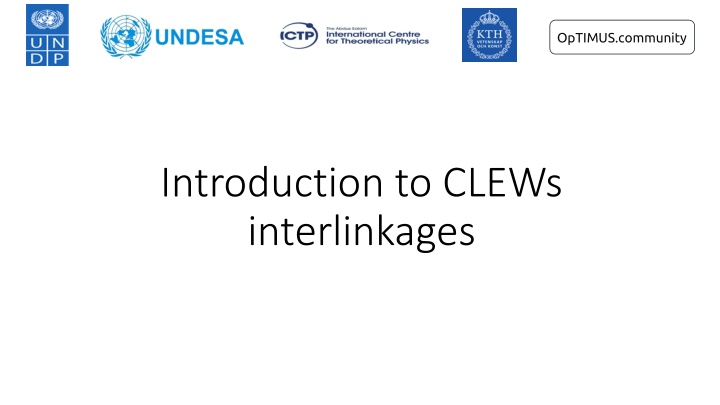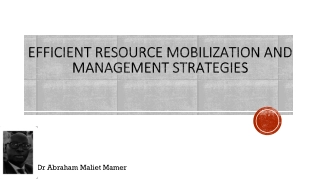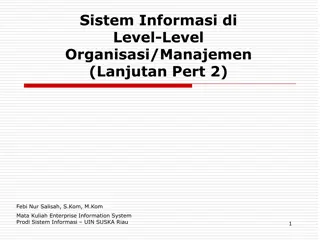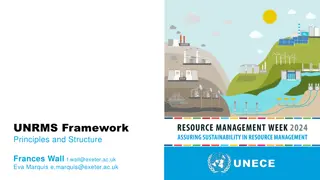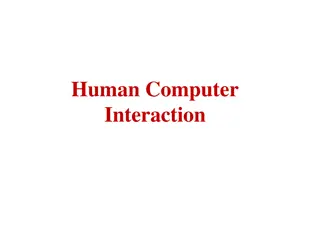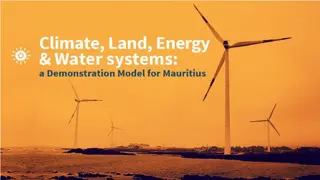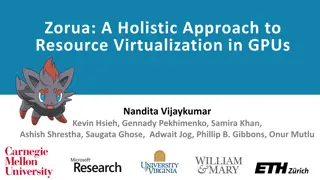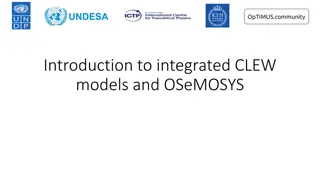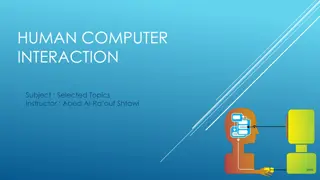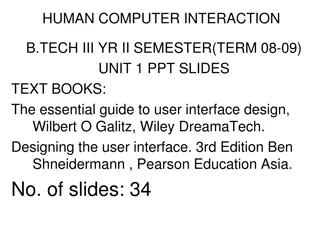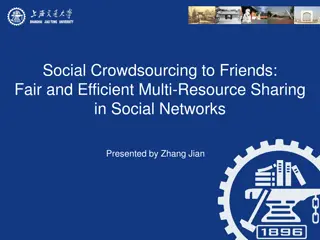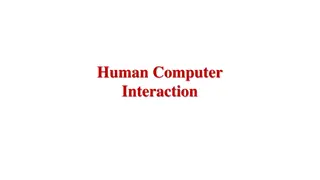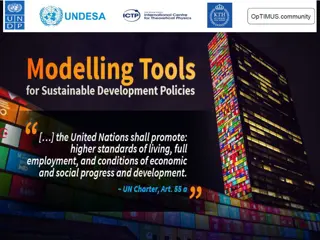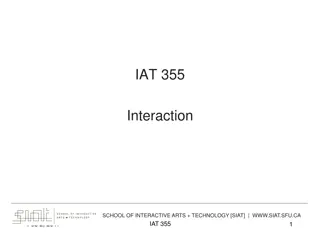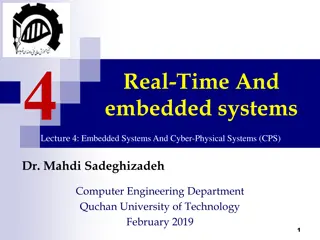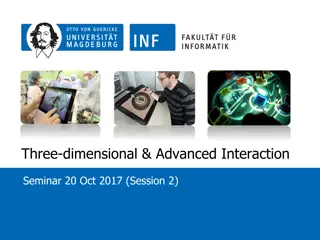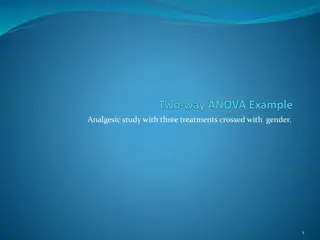Interaction of Resource Systems in CLEWs
Integration of knowledge from different systems like water, energy, food, and climate into a single framework through the development of models representing resource system dynamics and interactions with users. Assessing the climate, land, food, energy, and water nexus, exploring conflicts and trade-offs. Understanding how systems interact, particularly focusing on water and energy interdependencies. The importance of water in various stages of electricity generation and the relationship between water and energy in different processes.
Download Presentation

Please find below an Image/Link to download the presentation.
The content on the website is provided AS IS for your information and personal use only. It may not be sold, licensed, or shared on other websites without obtaining consent from the author.If you encounter any issues during the download, it is possible that the publisher has removed the file from their server.
You are allowed to download the files provided on this website for personal or commercial use, subject to the condition that they are used lawfully. All files are the property of their respective owners.
The content on the website is provided AS IS for your information and personal use only. It may not be sold, licensed, or shared on other websites without obtaining consent from the author.
E N D
Presentation Transcript
https://lh6.googleusercontent.com/Ly_PhcwOrV7ieHqPjBUUdqFiAGODtzJmBwrIeHLHNXmO2gAmLok-TdTBr_d3BtnUCDenebmvgE80MCYN8Vorq6tctapX-MHkCI-nBydPkMCIQlU3bY5E3A4URgaFKH9_3Y3ixC7nhttps://lh6.googleusercontent.com/Ly_PhcwOrV7ieHqPjBUUdqFiAGODtzJmBwrIeHLHNXmO2gAmLok-TdTBr_d3BtnUCDenebmvgE80MCYN8Vorq6tctapX-MHkCI-nBydPkMCIQlU3bY5E3A4URgaFKH9_3Y3ixC7n https://lh4.googleusercontent.com/jDjKyzhdhZWMxUNi7z6qAJzpBZEkOBbfd9pxc_hw_VhHxoTvuhQehahE7VFIlqmGgpn-yNdL2HsCN5L4vZpsZzJoIFrGq37CRI-kV8YM3EbnBWnbkWxvjk9tYWPG2bomkqh_um96 https://lh5.googleusercontent.com/QwAyBzI_HrdO1gj0yaFRi0OiqghV8sMirzKBHzFYtGIWVVnBeuDuBR9_JP1vo9XJKYzGCL0sd1ZodqNBZxjvOYILUxRDdlxRQLuJNl1PB5k_6S9avTsqb2zL8U1SbUj7jo_r0pHa OpTIMUS.community Introduction to CLEWs interlinkages
Integrated Assessments Integration of knowledge from different systems (e.g. water, energy, food, climate) into a single framework through the development of models that aim at representing the dynamics of resource systems and their interaction with its users. Advancing knowledge of systems, interactions between systems and implications across sectors Main goal of informing policy design
Assessing the climate, land(food), energy and water nexus Investigation of how resource systems interact. Conflicts Trade-offs The CLEWs framework suggests this can be achieved quantitatively: - with the development of sectoral systems models and integration and iteration between these; - Using a single model framework (e.g. OSeMOSYS). Opportunities Synergies
Water & energy Energy needs water in all the different stages of electricity generation, not just in the operational phase (e.g. cooling) but also for fuel extraction, component manufacturing and power plant construction. WATER water systems rely on energy to operate at every stage, from water abstraction and production, diversion, treatment, use and disposal. ENERGY Summer School on Modelling Tools for Sustainable Development 12-30 June 2017, ICTP, Trieste. Organizers: UNDESA, UNDP, ICTP, Cambridge University, KTH 3/12/2025
Water to Energy Fossil fuel extraction Fuel cycle Fuel processing Biofuel cultivation and processing WATER TO ENERGY Transport sector hydropower Energy conversion processes Electricity generation Thermal power Non-hydro renewables Summer School on Modelling Tools for Sustainable Development 12-30 June 2017, ICTP, Trieste. Organizers: UNDESA, UNDP, ICTP, Cambridge University, KTH 3/12/2025 7
Water to Energy: water use, withdrawal and consumption Water use withdrawal Reservoirs and RoR Non- Consumptive use: evaporation in cooling ponds and towers Consumptive use: consumptive: Non- consumptive: discharge Return of withdrawn water evaporation losses Summer School on Modelling Tools for Sustainable Development 12-30 June 2017, ICTP, Trieste. Organizers: UNDESA, UNDP, ICTP, Cambridge University, KTH 3/12/2025 8
Water for energy: electricity generation Evaporation HYDROPOWER PLANTS discharge WATER RESOURCES THERMAL POWER PLANTS consumption withdrawal Return flow
Water for energy: thermal generation and cooling systems TYPE OF FUEL AND TECHNOLOGY (m3MWh-1) Once-Through 0.38 1.02 0.95 3.03 (m3MWh-1) Tower 0.78 2.54 2.60 3.41 TYPE OF COOLING SYSTEM
pumping (extraction and distribution Energy to water water purification Operation of water systems wastewater treatment ENERGY TO WATER non-conventional production of potable water pump storage power plants Water heating Use of water Energy use and end use (e.g. washing machines) Energy for agriculture Irrigation systems Summer School on Modelling Tools for Sustainable Development 12-30 June 2017, ICTP, Trieste. Organizers: UNDESA, UNDP, ICTP, Cambridge University, KTH 3/12/2025 11
Water & Land URBAN AREAS & PLANNING Population distribution and location of water resources WATER TO LAND Crop suitability and yields AGRICULTURE Livestock Forests Natural cover Wetlands Inland water Summer School on Modelling Tools for Sustainable Development 12-30 June 2017, ICTP, Trieste. Organizers: UNDESA, UNDP, ICTP, Cambridge University, KTH 3/12/2025 12
Group work Identifying CLEW challenges at national level Access google doc (in Country Data folder): Climate land use energy water challenges Summer School on Modelling Tools for Sustainable Development 12-30 June 2017, ICTP, Trieste. Organizers: UNDESA, UNDP, ICTP, Cambridge University, KTH 3/12/2025 13
